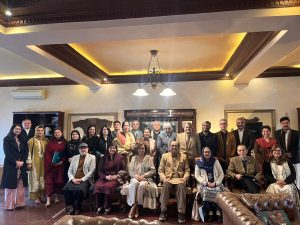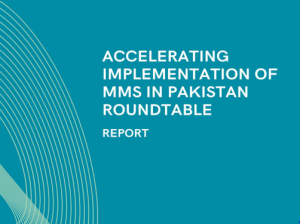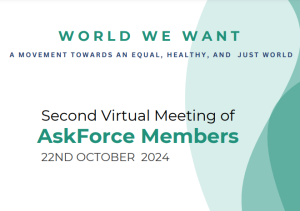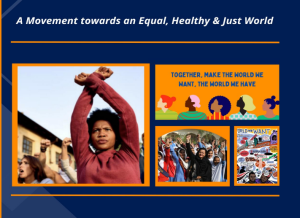
Climate Change, Gender Disparity and Self Care
“[I fight] so that future generations will have the resources and assets they need to survive on a planet that’s being destroyed every day.” –Mirium Miranda
If we had to identify the most neglected issues globally, we would highlight the rights of women and the health of our planet. The simultaneous disregard for half of the world’s population and the environment reflects a troubling combination of greed and incompetence. We are actively harming our planet and accelerating climate change through various human activities.
Climate change affects different regions at varying rates, with South Asia being particularly vulnerable. According to the Global Climate Risk Index (UN-Habitat, 2023), Pakistan ranks as the fifth most vulnerable country to climate change. At the same time, it ranks an alarming 161st out of 191 countries on the Gender Inequality Index, as reported by the Human Development Index (2022).
This raises an important question: what is the connection between these two issues?
Women’s rights are severely neglected in Pakistan, largely due to a deeply entrenched patriarchal system that presents numerous challenges. These include limited access to education, employment opportunities, and healthcare, all of which significantly hinder their prosperity. Furthermore, climate change disproportionately impacts women, particularly those in rural areas or from lower-income backgrounds. By 2050, nearly 160 million women and girls worldwide may be pushed into poverty as a direct result of climate change (UN Women). They are often tasked with securing food and water,
working on farms, and caring for families, all while facing extreme weather conditions.
This intersection of gender and climate change not only affects women’s immediate needs but also and mental health needs that must be prioritized to ensure positive birth outcomes. While women from higher socioeconomic classes may have better access to healthcare, those from lower classes often endure difficult pregnancies. They typically lack quality medical facilities and are burdened by domestic responsibilities, unable to hire help like their more affluent counterparts. Additionally, the stressors of climate change exacerbate the challenges faced by these women.
A qualitative study titled ‘Birth in a Burning World’ conducted by the Forum for Women Development & Research (FWDR) in Shikarpur, Sindh, highlights this critical issue. In the study of twenty-one pregnant and breastfeeding women affected by the extreme heat of the 2022 heatwave, many reported significant hardships. They struggled to manage domestic and work obligations in
sweltering conditions, lacking resources such as fans or access to cool spaces, with little time to rest.
The devastation caused by the 2022 floods further compounded their difficulties. The adverse effects of extreme weather extend to the health of their children, with evidence indicating that exposure to high temperatures can lead to increased rates of disease, postpartum depression, and difficulties in breastfeeding due to dehydration. Amid these challenges, self-care is a crucial but often overlooked aspect for women facing the dual pressures of climate change and gender inequality. Women must prioritize their physical and mental health to effectively care for their families and communities. This requires access to resources that promote well-being, such as healthcare, mental health support, and spaces for rest and recuperation.
To support women’s self-care, it is vital to implement gender-responsive climate initiatives that recognize and address their specific needs. Increased financial resources should be allocated to programs that empower women, such as access to climate finance for women-led projects and establishing microfinance programs tailored to rural and marginalized communities. Additionally, women disproportionately affected by climate change must be central to policy and decision-making processes. The upcoming COP 29 presents an opportunity to spotlight gender inequality in the context of climate change. Advocating for women’s representation and participation in all levels of climate-related decision-making, including establishing quotas for their involvement in negotiation teams and leadership roles, is essential.
By prioritizing self-care and well-being, we can empower women to navigate the challenges posed by climate change. Through collective efforts, we can bridge the gender gap in climate action and create a more equitable future for all.





